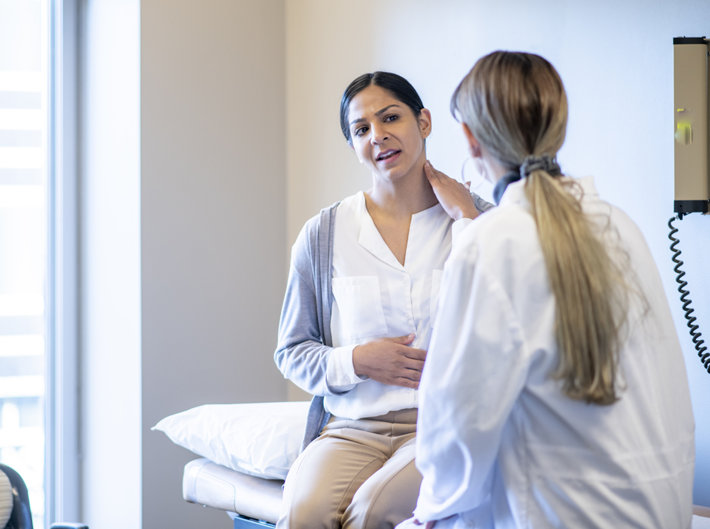Alcohol Misuse and Cancer Risk—Another Reason to Put the Bottle Down

Many reasons, health and otherwise, would dictate to avoid over-consumption of alcohol. Now the risk of cancer is another item to add to the “reasons not to drink” list. Studies show that consumption of alcohol can increase the risk of cancer.
Cancer has escalated in the United States to the degree that approximately 39.5% of the population will be diagnosed with cancer sometime in their lives. Logically, most Americans want to know how to beat these frightful statistics. As it turns out, one of the best ways to avoid cancer is to cease alcohol consumption.
Alcohol and Cancer
According to the National Cancer Institute:
- A strong scientific agreement exists that consumption of alcohol can cause cancer. The National Toxicology Program of the U.S. Department of Health listed alcoholic beverages as a known human carcinogen.
- Evidence also indicates that the more alcohol a person drinks, particularly over time, the more likely that person is to develop alcohol-associated cancer. Even light drinkers (people who drink no more than one alcoholic beverage per day) are at a modestly increased risk for some cancers.
- According to death reports, about 3.5% of all cancer deaths in the United States (about 19,500 deaths) were alcohol related.
More than 100 types of cancer are categorized. Though alcohol does not have direct cancer-causing influence on all 100 types, studies show that excessive drinking increases the risk factors for several types of cancer. There are five relatively common cancers that are often brought on by too much alcohol consumption.

Head and Neck Cancer
Moderate and heavy alcohol consumption has been linked to higher risks for head and neck cancer. People who drink in moderation are 1.8 times more likely to experience oral cancer and throat cancer and are 1.4 times more likely to experience cancers of the larynx. Heavy drinkers are 5 times more likely to experience oral cancer and 2.6 times more likely to experience cancers of the larynx.
Esophageal Cancer
People who drink in strict moderation are still at 1.3 times the risk of experiencing esophageal cancer than nondrinkers, and heavy drinkers are at 5 times the risk.
Liver Cancer
People who drink too much alcohol are twice as likely to contract liver cancer than those who do not drink alcohol or who are very conservative in their drinking. Cancer is not the only damage that overdrinking can have on the liver. Over time, drinking can lead to a long list of potentially fatal liver-related health problems, including cirrhosis of the liver.
Breast Cancer
Alcohol consumption is also a risk factor for breast cancer. For women who drink in moderation, their risk factors are at 1.04-fold the risk for breast cancer than nondrinkers. Women who drink to excess are at a 1.6-fold risk for breast cancer. Also, women who drink alcohol and smoke tobacco are at a much higher risk of developing breast cancer.
Colorectal Cancer
People who drink alcohol in moderation or to excess are about 1.5 times more likely to contract colon and rectum cancers than those who do not drink alcohol at all. Even people who drink in moderation are at increased risk.
Other Cancers

There is a developing body of evidence that suggests alcohol consumption can also play a role in melanoma, prostate cancer and pancreatic cancer.
In conclusion, the National Cancer Institute reports: “A recent study that included data from more than 1,000 alcohol studies and data sources, as well as death and disability records from 195 countries and territories from 1990 to 2016, concluded that the optimal number of drinks to consume per day to minimize the overall risk to health is zero.”
Multiple health institutions, including the National Cancer Institute, the Centers for Disease Control and Prevention, the American Cancer Society and the National Institute on Alcohol Abuse and Alcoholism have all suggested there is no possible health benefit from consuming alcohol, but there is a fair amount of risk. In other words, the advice for those who don’t drink is, “Don’t start.”
Alcohol and Addiction—Cancer Risk for Alcohol Addicts
Any amount of alcohol consumption makes an individual more vulnerable to cancer. That is abundantly clear. Furthermore, risks for cancer increase exponentially when one drinks to excess. People who are addicted to alcohol are out of control with their alcohol consumption - they cannot limit how much they drink or how often they drink. Alcohol abusers tend to consume the most alcohol in volume (and consistently) over time and are at the highest risk for alcohol-related cancer.
Anyone addicted to alcohol needs professional help before it is too late. Fortunately, there is a way out of the dwindling spiral that is alcohol addiction. The alcohol abuser can achieve freedom from alcohol with the help of a treatment center.
One of the many silver linings in kicking the alcohol habit is that the risk for cancer does reduce after one becomes alcohol free. According to the National Cancer Institute, it takes many, many years for those who stop drinking to have their risk levels drop to the level of “never drinkers.” But those risk levels do recede over time. For this reason and so many others, it is worth the effort, challenge and commitment it takes to get help and stop drinking.
Sources:
- https://www.cancer.gov/about-cancer/causes-prevention/risk/alcohol/alcohol-fact-sheet
- https://www.cdc.gov/cancer/alcohol/index.htm
- https://www.cancer.gov/about-cancer/understanding/statistics


